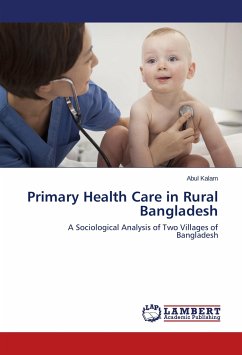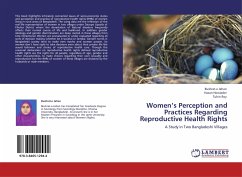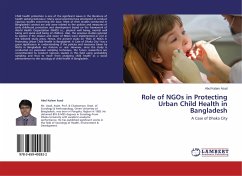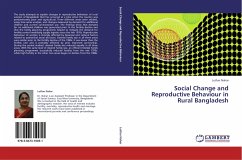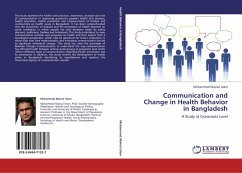
Communication and Change in Health Behavior in Bangladesh
A Study at Grassroots Level
Versandkostenfrei!
Versandfertig in 6-10 Tagen
45,99 €
inkl. MwSt.

PAYBACK Punkte
23 °P sammeln!
This study examines the health care practices, awareness, changes and role of communication in improving grassroots people's health and diseases, health education, health promotion and empowerment of families and communities on health issues in Bangladesh. It has been comprehended that the prevention of diseases and the promotion of health depends on social conditions in which people live and decisions made by policy planners, politicians, families and individuals. This study undertakes to asses communication activities and programs on health and their impact from a sociological perspective, w...
This study examines the health care practices, awareness, changes and role of communication in improving grassroots people's health and diseases, health education, health promotion and empowerment of families and communities on health issues in Bangladesh. It has been comprehended that the prevention of diseases and the promotion of health depends on social conditions in which people live and decisions made by policy planners, politicians, families and individuals. This study undertakes to asses communication activities and programs on health and their impact from a sociological perspective, which may be advanced for future evaluation. It shows that over time modernization and increasing communication has led to significant behavioral change. This study has used the paradigm of Behavior Change Communication to understand the way communication has affected health behavior among social groups at grassroots level which reflects different types of communication regarding health promotion and its constraints. In addition, this study reviews the development of health policy in Bangladesh identifying its impediments and explores the theoretical aspects of communication models.





